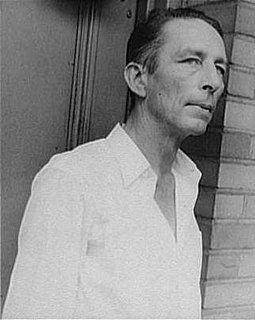A Quote by Robinson Jeffers
Cruelty is a part of nature, at least of human nature, but it is the one thing that seems unnatural to us.
Related Quotes
A highly developed moral nature joined to an undeveloped intellectual nature, an undeveloped artistic nature, and a very limited religious nature, is of necessity repulsive. It represents a bit of human nature a good bit, of course, but a bit only in disproportionate, unnatural and revolting prominence.
It is part of our human nature to want to be liked. It is part of our human nature to worry about what others think of us. It is an attribute of greatness and of American exceptionalism to not surrender to our nature, but to be guided by an inner calling to persevere and to prevail, no matter the personal cost.
There is nothing unnatural in this world," he said. "An unnatural thing is a thing that could never happen in nature. I happened. I am natural, and the things I want are natural. The power of your mind, and your beauty, even when you've been drugged in the bottom of a boat for two weeks, covered in grime and your face purple and green - your unnatural beauty is natural. Nature is horrifying.
Cruelty, very far from being a vice, is the first sentiment Nature injects in us all. The infant breaks his toy, bites his nurse's breast, strangles his canary long before he is able to reason; cruelty is stamped in animals, in whom, as I think I have said, Nature's laws are more emphatically to be read than in ourselves; cruelty exists amongst savages, so much nearer to Nature than civilized men are; absurd then to maintain cruelty is a consequence of depravity. . . . Cruelty is simply the energy in a man civilization has not yet altogether corrupted: therefore it is a virtue, not a vice.
Nature is purposeless. Nature simply is. We may find nature beautiful or terrible, but those feelings are human constructions. Such utter and complete mindlessness is hard for us to accept. We feel such a strong connection to nature. But the relationship between nature and us is one-sided. There is no reciprocity. There is no mind on the other side of the wall.
The truest definition of evil is that which represents it as something contrary to nature; evil is evil because it is unnatural; a vine which should bear olive-berries, an eye to which blue seems yellow, would be diseased; an unnatural mother, an unnatural son, an unnatural act, are the strongest terms of condemnation.
Nature is man's inorganic body -- that is to say, nature insofar as it is not the human body. Man lives from nature -- i.e., nature is his body -- and he must maintain a continuing dialogue with it is he is not to die. To say that man's physical and mental life is linked to nature simply means that nature is linked to itself, for man is a part of nature.
We mustn't be afraid of inventing anything...Everething there is in us exists in nature. After all, we're part of nature. If it resembles nature, that's fine. If it doesn't, what of it? When man wanted to invent something as useful as the human foot, he invented the wheel, which he used to transport himself and his burdens. The fact that the wheel doesn't have the slightest resemblance to the human foot is hardly a criticism of it.
Many people think that when we practice agriculture, nature is helping us in our efforts to grow food. This is an exclusively human-centered viewpoint... we should instead, realize that we are receiving that which nature decides to give us. A farmer does not grow something in the sense that he or she creates it. That human is only a small part of the whole process by which nature expresses its being. The farmer has very little influence over that process... other than being there and doing his or her small part.
As far as life is concerned, there is no such thing as "Nature". There are only homes. Home is that environment to which the individual has become adapted; and almost everything is unnatural outside his range of adaptation. Harmonious equilibrium with nature is an abstract concept with a Platonic beauty but lacking the flesh and blood of life. It fails, in particular, to convey the creative emergent quality of human existence.







































